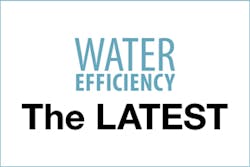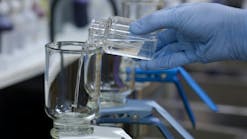The Water Research Foundation (WRF) is accepting proposals for Critical Evaluation and Assessment of Health and Environmental Risks from Antibiotic Resistance in Reuse and Wastewater Applications. The goal of the project is to examine approaches to quantify the public health and environmental risks related to antibiotic resistance (AR) in reuse and wastewater applications.
The World Health Organization (WHO) has recognized AR as “one of the three greatest threats” to human health, and has highlighted the need to develop standards addressing AR occurrence in the environment, specifically in reuse water and wastewater (WHO, 2015). As a first step in understanding this topic, WRF and several key stakeholders, including the Global Water Research Coalition (GWRC), launched Occurrence, Proliferation, and Persistence of Antibiotics and Antibiotic Resistance during Wastewater Treatment (WERF1C15 published), which addressed questions related to biological wastewater treatment, and advanced the science toward the broader goal of fully characterizing the implications of AR in water.
The Metropolitan Water Reclamation District of Greater Chicago is seeking a visionary Executive Director. The District is an award-winning wastewater agency which has been a leader in protecting the Chicago area water environment for over a 120 years. For information and to apply, click here or contact [email protected].
The District is an Equal Opportunity Employer.
The project will benefit the water quality community by:
Informing stakeholders of the current state of antibiotic resistant bacteria (ARB)/antibiotic resistant genes (ARG) risk assessment in wastewater and reuse water.
Outlining current research gaps and challenges with reference to ARB/ARG risk assessment.
Providing a framework outlining how ARB/ARG risk assessment in wastewater and reuse water can be achieved.
Providing a condensed summary that communicates major findings to stakeholders in an easy, straightforward manner.
The GWRC works on a global matrix structure where data for a quantitative health risk assessment is collected. The data used in this study will be a part of the GWRC global matrix structure where an expert meeting will be held to further populate the matrix, define research gaps, and discuss scenarios (e.g., hot spots like wastewater discharge) to evaluate the global risk matrix.
This project is not experimental in nature; investigators should focus on developing a proposal that addresses the topic of ARB/ARG risk assessment using information and resources that are currently available. Successful proposals will describe a comprehensive approach to assessing the risks associated with ARB and ARGs in wastewater and reuse waters using the most up-to-date information available.
Successful completion of the tasks specified in this RFP will result in a report yielding a current and comprehensive assessment of the risks associated with ARB and ARGs in wastewater and reuse waters. Additionally, the report should also provide a roadmap focusing on what is needed for effective risk assessment with respect to ARB/ARGs moving forward.
Proposals may request WRF funds up to $140,000. Educational institutions, research organizations, federal or state agencies, municipalities, consultants or other for-profit entities are encouraged to submit proposals. Proposals submitted in response to this RFP must follow The Water Research Foundation’s document Guidelines for Focus Area Program Proposals. The guideline contains instructions for the technical aspects, financial statements, and administrative requirements that the applicant must follow.
Proposals must be submitted before 5:00 PM MT (7:00 PM ET) on Wednesday, October 10. For questions, contact Lola Olabode at [email protected].
About WRF
The Water Research Foundation is a 501c3 organization officially formed in January 2018 after the merger of the Water Environment & Reuse Foundation and Water Research Foundation. The merged Foundation is the leading water research organization, funding research, pilot projects, and technology demonstrations that maximize the value of all water, including wastewater, stormwater, drinking water, and recycled water. Learn more at www.werf.org or www.waterrf.org.




